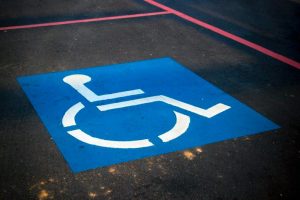Common Challenges and Problems Wheelchair Users Face
23 Nov 2020
Wheelchairs are an invaluable tool which aids an individual both physically and mentally by providing a safe and convenient way to travel, offering far more freedom to the individual. This increased independence has a vital impact on a person’s mental health by allowing them to freely access social gatherings and leisure activities at ease. A wheelchair also ensures that the user can travel safely, minimising risk and providing comfort throughout the day. As accessibility is, rightly, becoming a more vocalised issue, many locations and activities are ensuring they are available for everyone. This could be as easy as installing wheelchair ramps into a public building, allowing the user to easily get in and out. In today’s blog, we will be exploring some of the most common challenges and difficulties for wheelchair users and what is being done to support this issue.

Public Transport
Public transport is a fundamental service within society, providing the opportunity for people to commute easily to work, education and to travel for leisure. A car can be costly and is sometimes not accessible to someone using a wheelchair. This is why it is so important to ensure that public transport is developed to allow easy access for these individuals. In the UK, the majority of public buses come equipped with a ramp which allows wheelchair users to access the vehicle. The front of the bus is typically a spacious area reserved for wheelchairs and push-chairs, allowing them to enter and exit the vehicle first and travel comfortably.
Some services have taken steps to allow their buses to be even more accessible to wheelchair users, such as First Bus. Their fast-tracking smartphone app allows users to view the number of available wheelchair spaces on their bus in real-time. The user is able to search the time and date of travel, as well as the service number, and they can see the number of available spaces. This innovative idea means wheelchair users can travel whilst being informed and feeling confident with the arrangements. To find out more or to download the app, click here.

Pubs and Restaurants
The Equality Act 2010 calls for organisations such as shops to make reasonable adjustments to ensure they are accessible to everyone. Some ways in which a building can make a reasonable adjustment to allow wheelchair access include things like providing disabled toilets, widening the space between aisles in a shop, and providing ramps in and out of a building. These accessible features are more commonplace in modern buildings which often provide them as standard. Older buildings can lack some of the key features needed to ensure wheelchair users can use the service comfortably and easily.
Banking
Banking is another essential service which is predominantly accessed online. Many banks offer mobile banking which allows the user to move and send money between accounts, eliminating the need to visit physical locations. However, there are some services which require access to the bank, such as depositing money. In these cases, many banks have features which allow the user to find a bank which has wheelchair access, such as the HSBC branch finder, where you can locate your nearest branch which has level access. This particular bank also offers lower-level desks, low-level counter access and ATM’s on different levels.

Blue Badges
The Blue Badge parking scheme was created to allow people with disabilities specific parking rights which make it easier to access establishments without having to travel for a longer period. You can check your eligibility and apply for a Blue Badge through the GOV.UK website, and they last for up to 3 years. If you have a valid Blue Badge, this allows an individual to park in specific disabled spaces in areas such as supermarket car parks. Different locations pose different parking rules, for example, in some locations, you can park on single or double yellow lines for up to 3 hours. We would recommend double-checking the rules for different areas before travelling.
The Final Word
If you use a manual wheelchair, this piece of equipment can be essential to your daily life. This allows you to travel safely and comfortably. Here at Blue Badge, we offer wheelchair insurance. This gives you peace of mind in the event your chair is damaged or stolen and ensures you can get moving again as soon as possible. We are a friendly, UK-based team who understands the importance of mobility. We offer Electric and Manual Wheelchair Insurance from just £24 which protects against accidental damage as well as theft and public liability. We also cover you to take your wheelchair abroad, including baggage handling. Having wheelchair insurance allows you to enjoy its benefits with peace of mind that you are covered, and you have access to advise and support from an experienced team. For further information don’t hesitate to get in contact.
Other Provided Services:
Why Wheelchair Access is so Important